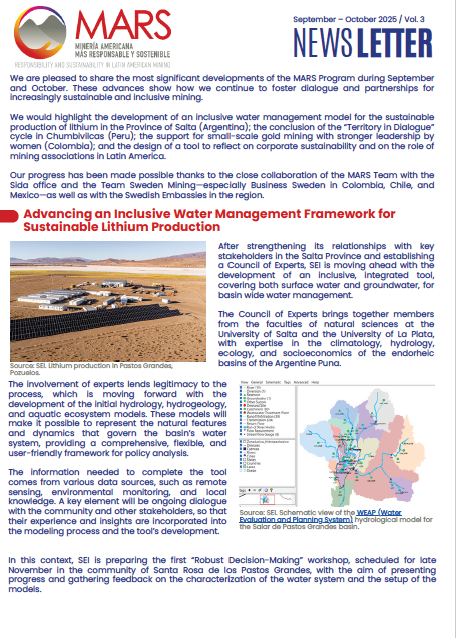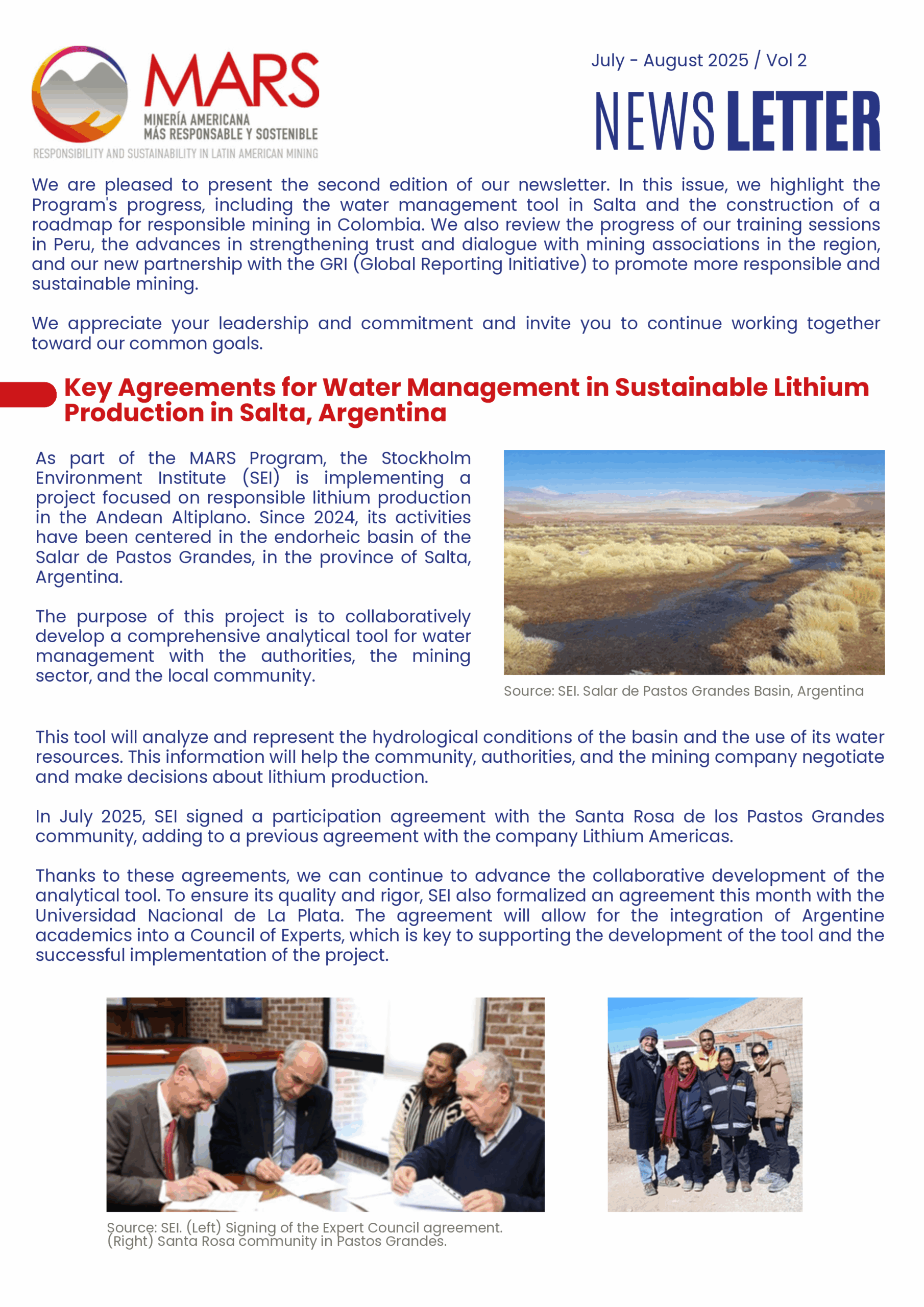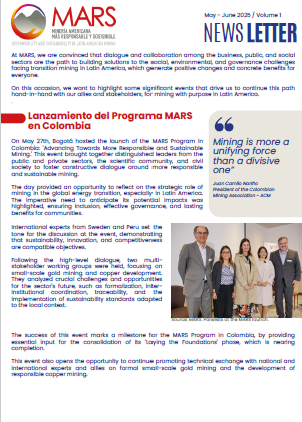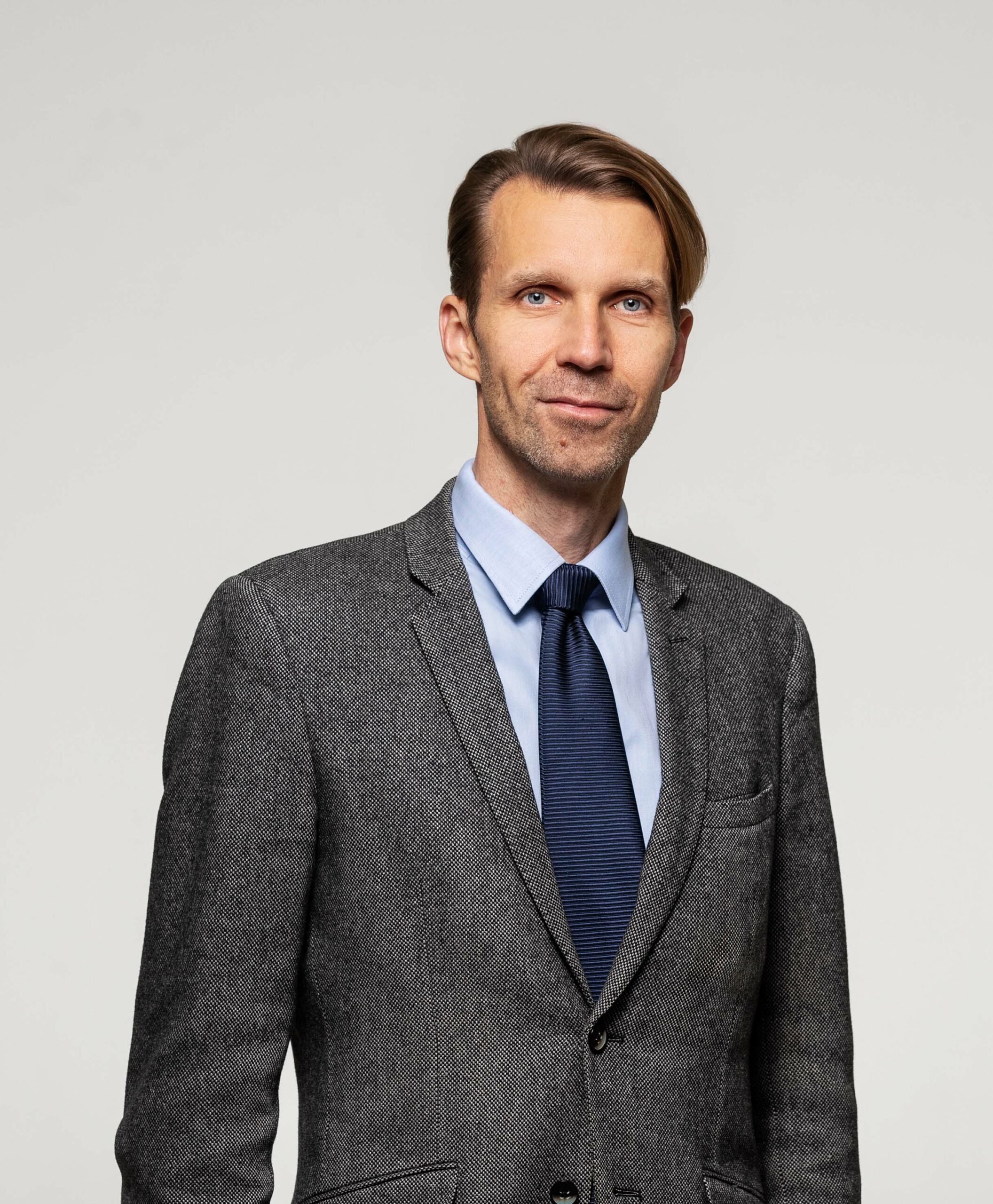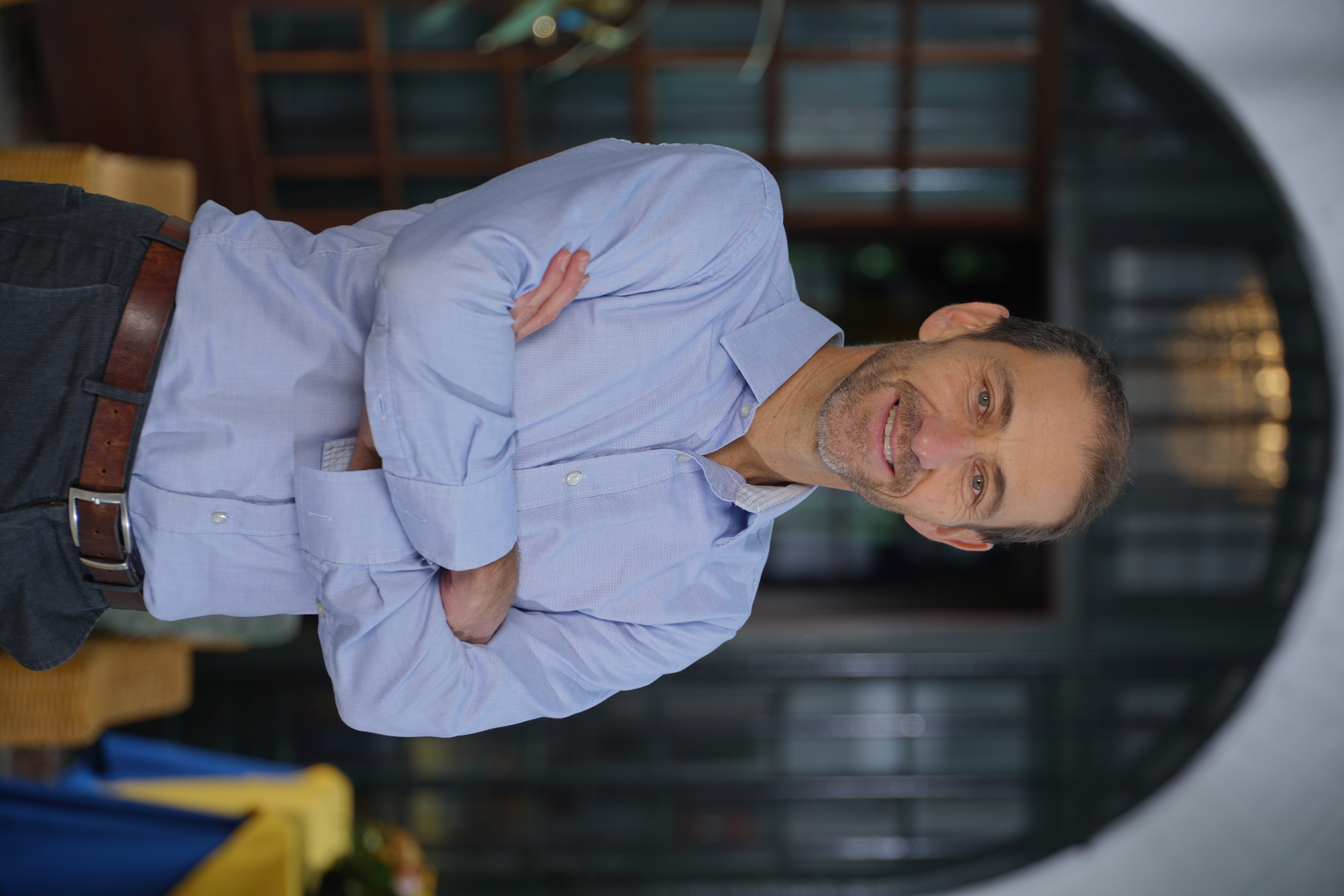NEWSLETTER
September - October 2025 / Volume 3
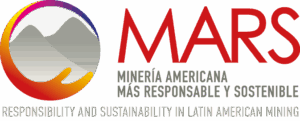
We are pleased to share the most significant developments of the MARS Program during September and October. These advances show how we continue to foster dialogue and partnerships for increasingly sustainable and inclusive mining. Progress has been made possible thanks to the close collaboration of the MARS Team with the Sida office and the Team Sweden Mining—especially Business Sweden in Colombia, Chile, and Mexico—as well as with the Swedish Embassies in the region.
Salta, Argentina
Advancing an Inclusive Water Management Framework for Sustainable Lithium Production
After strengthening its relationships with key stakeholders in the Salta Province and establishing a Council of Experts, SEI is moving ahead with the development of an inclusive, integrated tool, covering both surface water and groundwater, for basin wide water management. The Council of Experts brings together members from the faculties of natural sciences at the University of Salta and the University of La Plata, with expertise in the climatology, hydrology, ecology, and socioeconomics of the endorheic basins of the Argentine Puna.
The involvement of experts lends legitimacy to the process, which is moving forward with the development of the initial hydrology, hydrogeology, and aquatic ecosystem models. These models will make it possible to represent the natural features and dynamics that govern the basin’s water system, providing a comprehensive, flexible, and user-friendly framework for policy analysis. The information needed to complete the tool comes from various data sources, such as remote sensing, environmental monitoring, and local knowledge. A key element will be ongoing dialogue with the community and other stakeholders, so that their experience and insights are incorporated into the modeling process and the tool’s development
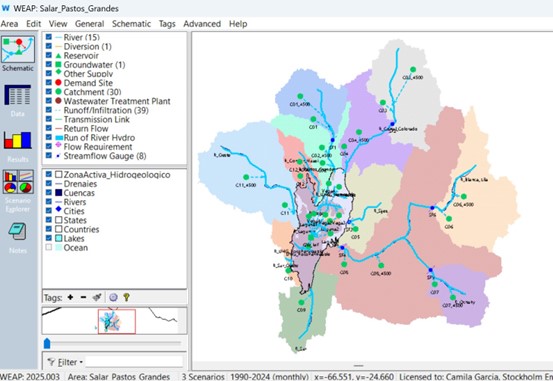
Schematic view of the WEAP (Water Evaluation and Planning System) hydrological model for the Salar de Pastos Grandes basin. Source: SEI.

Lithium production in Pastos Grandes, Pozuelos. Source: SEI.
After strengthening its relationships with key stakeholders in the Salta Province and establishing a Council of Experts, SEI is moving ahead with the development of an inclusive, integrated tool, covering both surface water and groundwater, for basin wide water management. The Council of Experts brings together members from the faculties of natural sciences at the University of Salta and the University of La Plata, with expertise in the climatology, hydrology, ecology, and socioeconomics of the endorheic basins of the Argentine Puna.
In this context, SEI is preparing the first “Robust Decision-Making” workshop, scheduled for late November in the community of Santa Rosa de los Pastos Grandes, with the aim of presenting progress and gathering feedback on the characterization of the water system and the setup of the models.
Chumbivilcas, Peru
Successful Completion of the “Territory in Dialogue” Strengthening Cycle
The “Territory in Dialogue” series brought together representatives from businesses, local communities, and government authorities to strengthen their role in territorial decision-making and to promote more sustainable, collaborative development. It also helped prepare participants from Chumbivilcas to engage more effectively in dialogue and consensus-building processes.
The sessions included specialized activities for key groups, such as the Chumbivilcas Women’s Association and the Agrarian League, both of which play a fundamental role in local development.
The process concluded with a multi-stakeholder dialogue that convened representatives from the public and private sectors, as well as civil society, to address issues such as effective participation and the identification of priorities for territorial development. Taking advantage of the visit to the territory, meetings were also held with authorities and institutional actors in Cusco and Santo Tomás, including the Regional Government, the Provincial Municipality of Chumbivilcas, civil society organizations, and representatives from academia. With this cycle completed, the MARS Program plans to replicate the workshops in the town of Pasco starting in November. A closing session will also be held in Lima, with the participation of private-sector actors. Through these actions, the commitment is reaffirmed, and progress is made toward building a shared vision for the sustainable development of Chumbivilcas and Pasco.
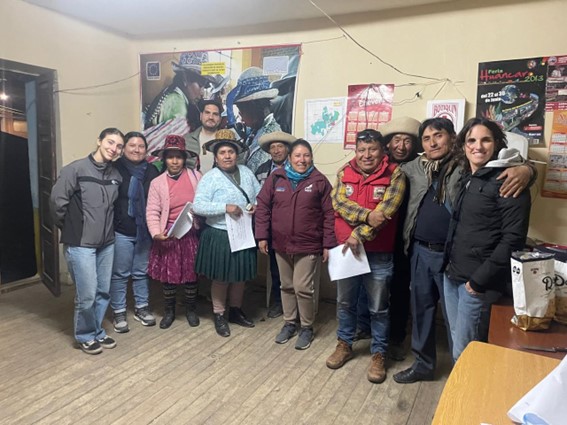
“We need to strengthen the organization and hopefully get support (…)We’re going to come together and take part in whatever spaces are needed.”
Representative of the Women's Association
Chumbivilcas,
Peru
Tool Development, Regional
Corporate Sustainability and Regional Mining Associations: How Do They Connect?
The innovative “Organizational Self-Assessment Tool,” recently developed by our partner Centro Vincular in coordination with the OECD, within MARS’ regional component, seeks to encourage internal reflection within each mining association on its catalytic role in Responsible Business Conduct. Its effects are focused on strengthening the industry’s legitimacy and creating value for all stakeholders.
The tool is grounded in a holistic vision and in the leveraging potential of each association, as well as in its connection with the growing Corporate Sustainability requirements placed on member mining companies.
It is designed as an opportunity to analyze, organize, and connect the progress each institution has made over time and to outline potential areas to advance. The benefits of applying this tool will depend on the level of commitment each association is able to establish on the basis of a reflective, cross-cutting, and open analysis.
In the coming months, we will continue to explore and gradually promote closer coordination with the mining associations.
Colombia
Driving Responsible Small-Scale Gold Mining through a Gender Perspective and Collaborative Partnerships
In Colombia, we continue to make steady progress in strengthening the formal small-scale gold mining sector. Together with Women in Mining Colombia (WiM) and with the support of the Alliance for Responsible Mining (ARM), eight virtual workshops on leadership and empowerment are being held for women in the sector, which will conclude with an in-person meeting in December.
Likewise, we have launched the Diploma Program on Risk Management in the Precious Metals Supply Chain, led by Qpertino Lawyers and the Universidad Autónoma Latinoamericana (UNAULA), with support from ARM. This 104-hour virtual program will run from October to December 2025.
We also highlight the formalization of the new partnership between MARS and Aris Mining, consolidated during the Roundtable for Development and Sustainability in Manizales, Caldas. This agreement will promote responsible small-scale gold mining and the empowerment of women in mining territories, in coordination with local stakeholders to achieve real and measurable impacts.
Finally, in collaboration with the Alliance for Responsible Mining (ARM) and the Chamber of Small-Scale Mining (ACM), we are organizing the event “Advancing toward More Responsible and Competitive Mining in Colombia,” to be held on November 14 in Medellín, with the goal of presenting the results of the baseline study on formal small-scale gold mining.
The study shows growth in the sector, with more than 3,000 registered companies holding 60% of the country’s mining titles. While this reflects greater formalization and local dynamism, it also underscores the need to strengthen environmental practices, improve access to finance, ensure occupational safety, and foster multi-stakeholder collaboration.
Specialists and sector leaders will take part in the event to share experiences and strengthen cooperation among government, industry, and civil society, with the aim of moving toward a national roadmap for more sustainable and inclusive mining.

Signing of the agreement with Aris Mining. Source: Mars
“Resilience, discipline, courage, and love are the invisible force that drives women miners to transform their territories with purpose (…)”
Participant, “Women Inspiring
Women” workshop, WiM–MARS
Alliance.,
Colombia
Partnerships
Collaboration with Team Sweden
Since the beginning, MARS has worked in close coordination and collaboration with Team Sweden Mining, and especially with Business Sweden in Colombia, Chile and Mexico, as well as with the Swedish embassies and Sida offices in the region. The goal is to leverage Sweden’s extensive experience and knowledge in mining and sustainability, creating synergies that mutually strengthen and advance the goals of MARS and the Swedish Government’s Trade & Development initiative.
Within this collaboration, we co-developed the agenda for the second edition of the Swedish Mining Initiative, organized by the Embassy of Sweden in Buenos Aires, and participated in sessions that fostered dialogue among academia, companies, governments, civil society, and development banks, to work together toward a more responsible and sustainable mining sector in Argentina.
Our regional partner, the Stockholm Environment Institute (SEI), presented the progress of an inclusive water management model for more sustainable lithium production in the province of Salta province, underscoring the importance of early stakeholder participation in planning and transparency in the use of critical territorial resources. The visit to Argentina also included joint meetings with the mining association CAEM the provincial chamber in San Juan and mining authorities at both federal and provincial levels to explore new opportunities for cooperation around the sustainable development of copper.
Argentina is emerging as a key mining country in the global green transition. A partnership with MARS, together with Team Sweden, can play a key role in building a competitive and responsible mining sector, respecting the environment and generating value for the people.

“MARS and Team Sweden Mining brought together governments, companies, and academic
representatives in their shared goal of advancing sustainability in mining in Latin America.”
“Swedish Mining Initiative” Meeting, Buenos Aires,
Argentina
Our Partners


